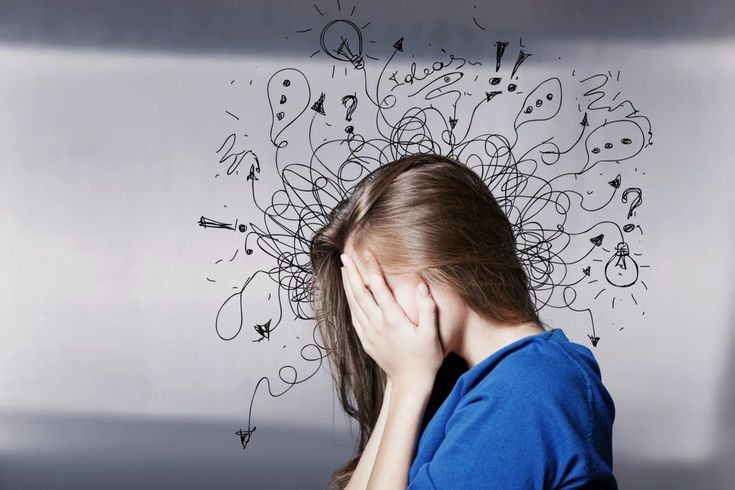Mental Health is a common topic in social media nowadays. A lot of people are opening up about their struggles and personal battles. Luckily, many talks about, seek advise and help, while some are silently fighting it. Afraid of public humiliation. Some wins this mental battle, but there are also a number of people who lose themselves to this sickness, which may result in Anxiety, Depression, and Mental Illness.

Mental illness refers to a wide range of conditions that affect a person’s mood, thinking, behavior, or perception. These conditions can vary greatly in severity, duration, and impact on daily functioning. Some common types of mental illnesses include depression, anxiety disorders, bipolar disorder, schizophrenia, and obsessive-compulsive disorder (OCD).
Mental illnesses can have various causes, including genetic factors, brain chemistry, traumatic life experiences, and environmental factors. They often involve a complex interaction between these factor.
Mental illness is mostly caused by the environment. Toxic people around also adds on it. Toxic traits are negative characteristics or behaviors that can harm individuals or relationships. These traits often stem from underlying issues such as insecurity, low self-esteem, or a lack of empathy.
Here are some common toxic traits that may affect one’s mind:
1. Manipulative Behavior – Manipulating others for personal gain or control.
2. Narcissism – Excessive self-centeredness, lack of empathy, and an inflated sense of self-importance.
3. Gaslighting – Manipulating someone into questioning their own reality, memory, or sanity.
4. Jealousy and Possessiveness – Being overly jealous or possessive in relationships, which can lead to controlling behavior.
5. Passive-Aggressiveness – Expressing negative feelings indirectly rather than openly addressing them.
6. Lack of Boundaries – Disregarding personal boundaries and overstepping others’ limits.
7. Constant Criticism – Habitually finding fault and criticizing others without constructive feedback.
8. Deflection and Blame-Shifting – Avoiding responsibility by shifting blame onto others or external circumstances.
9. Emotional Manipulation – Using emotions to control or influence others’ behavior.
10. Controlling Behavior: -Attempting to control every aspect of someone else’s life or decision-making process.

Toxic behaviors are actions or attitudes that have a negative impact on individuals, relationships, or communities. These behaviors can be harmful, manipulative, or damaging to both the person engaging in them and those around them.
Recognizing these traits is important for fostering healthier relationships and personal growth. This may help us to check ourselves, and to check others and may it be a big help for them to check themselves too.

These toxic traits mostly affect an environment especially at home, at work or in school. The result of toxic traits can be damaging both personally and interpersonally:
1. Personal Harm – Individuals with toxic traits may experience loneliness, anxiety, and dissatisfaction in their own lives. Their behavior can lead to feelings of guilt, shame, or emptiness.
2. Damaged Relationships – Toxic traits often strain or destroy relationships. Manipulative, controlling, or abusive behavior erodes trust and creates conflict. This can lead to isolation and a lack of meaningful connections.
3. Emotional Distress – Toxic behavior can cause emotional distress for both the individual displaying the traits and those affected by them. Victims may experience anxiety, depression, or low self-esteem as a result of manipulation, criticism, or abuse.
4. Stunted Personal Growth – Toxic traits hinder personal growth and development. Individuals may struggle to form healthy relationships, maintain employment, or achieve their goals due to their destructive behaviors.
5. Cycle of Toxicity – Toxic traits can perpetuate a cycle of dysfunction within families, friendships, or communities. Children raised in toxic environments may replicate harmful behaviors in their own relationships, continuing the cycle into future generations.
Overall, toxic traits have wide-ranging negative consequences on individuals’ well-being and the health of their relationships. Recognizing and addressing these traits is essential for fostering personal growth and cultivating healthier interactions with others.

Additionally, a toxic environment may cause burnout:
Burnout is a state of emotional, physical, and mental exhaustion caused by prolonged stress, often related to work or caregiving responsibilities. Some common signs of burnout include:
1. Exhaustion – Feeling depleted, physically and emotionally drained, and lacking energy.
2. Cynicism and Detachment – Feeling detached from work or responsibilities, becoming cynical or negative about tasks or interactions.
3. Reduced Performance – Decreased productivity, difficulty concentrating, and a sense of inefficacy in completing tasks.
4. Insomnia or Sleep Issues – Difficulty falling asleep, staying asleep, or experiencing restful sleep despite feeling tired.
5. Physical Symptoms – Headaches, muscle tension, stomach problems, or other physical complaints.
6. Increased Irritability – Feeling more irritable, impatient, or easily frustrated than usual.
7. Withdrawal -Withdrawing from social interactions, hobbies, or activities that were once enjoyable.
Burnout can have serious consequences for mental health, job performance, and overall well-being. It’s important to recognize the signs of burnout and take steps to address it, such as setting boundaries, seeking support, and practicing self-care.

These issues are not easy to be acknowledge, but we must practice checking ourselves and talk to others about this. It will be a big help to detect these traits and behavior to lessen the tension that might result to miscommunication. It may add to the stress and burden, and may cause to additional anxiety to you or to others around you.
If you or someone you know in the Philippines is struggling with mental health issues and needs support, here are some contacts and resources you can reach out to:
- National Center for Mental Health (NCMH): The NCMH is a government-run psychiatric hospital in Mandaluyong City, Metro Manila. They provide various mental health services, including outpatient clinics, emergency services, and inpatient treatment. You can contact them at (02) 531-9001 to 07 or visit their website for more information.
- Hopeline Philippines: This is a 24/7 suicide prevention and crisis intervention hotline operated by the Natasha Goulbourn Foundation. You can reach them at 2919 (toll-free for Globe and TM subscribers) or 804-HOPE (4673). They also offer online chat support through their website.
- The Philippine Mental Health Association (PMHA): PMHA is a non-governmental organization dedicated to promoting mental health and providing support services. You can contact their national office at (02) 8921-4958 or visit their website for information on local chapters and services.
- Mind Matters Philippines: This organization offers mental health education, advocacy, and support services. You can reach them through their website or social media channels for information and resources.
- Department of Health (DOH) Mental Health Helpline: The DOH operates a mental health helpline that provides information and support on mental health issues. You can contact them at (02) 7989-8727 (USAP) or 1553 (for Globe and TM subscribers).
- Crisis Line Philippines: This is a non-profit organization that provides emotional support, crisis intervention, and suicide prevention services. You can contact them at (02) 8939-9227 or visit their website for more information.
- Silakbo PH: Silakbo PH is a mental health advocacy group that offers online support and resources, including educational materials, community discussions, and peer support. You can connect with them through their social media platforms.
- Local Mental Health Facilities: Many communities in the Philippines have local mental health clinics, counseling centers, or hospitals that offer mental health services. You can inquire with your local government health office or barangay for information on available resources in your area.
Remember, reaching out for help is an important step towards healing and recovery. These organizations and hotlines are here to provide support and assistance to those in need.
It will be a big help to call medical expert, talk to them. They will not judged you. They will understand you. Seek help and be part of the solution. Be the positive side of this toxic society. Be kind.







